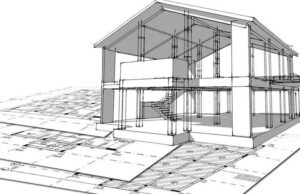Substance abuse, whether from drug addiction or alcohol dependence, remains a critical issue affecting millions of individuals and families worldwide. Recovery is possible, but it often requires more than just willpower—it demands structured support, professional guidance, and a safe environment to heal. That’s where drug rehab programs and rehabilitation for drinking come into play.
In this comprehensive guide, we’ll explore the ins and outs of these programs, why they matter, and how individuals struggling with substance use can find a path to recovery and lasting sobriety.
Understanding the Need for Drug and Alcohol Rehabilitation
Addiction is a complex condition that affects the brain, behavior, and overall well-being. It doesn’t discriminate by age, gender, income level, or background. Whether it’s opioids, stimulants, prescription medications, or alcohol, dependency can have devastating consequences if left untreated.
Drug rehab programs and alcohol rehabilitation centers offer structured pathways to recovery. These programs are designed to address both the physical and psychological aspects of addiction, offering patients the tools and support needed to regain control of their lives.
What Are Drug Rehab Programs?
Drug rehab programs are specialized treatment services that help individuals overcome drug addiction. They can vary in format, duration, and intensity, but all aim to achieve one goal: long-term recovery.
Types of Drug Rehab Programs
- Inpatient Rehabilitation
- Involves staying at a residential facility for a designated period (often 30, 60, or 90 days).
- Provides 24/7 medical support and structured treatment.
- Ideal for individuals with severe addictions or co-occurring mental health conditions.
- Outpatient Rehabilitation
- Allows individuals to live at home while attending scheduled treatment sessions.
- More flexible and suitable for those with strong social support or mild-to-moderate addictions.
- Includes Intensive Outpatient Programs (IOPs) and Partial Hospitalization Programs (PHPs).
- Detoxification Services
- Often the first step in a rehab program.
- Involves supervised withdrawal from drugs with medical support to manage symptoms.
- Prepares the patient for long-term therapy.
- Long-Term Residential Treatment
- May last six months or longer.
- Offers a highly structured environment to reinforce long-term behavioral changes.
- Therapeutic Communities
- Residents help each other recover in a peer-supported setting.
- Focuses on re-socialization and community responsibility.
Rehabilitation for Drinking: A Closer Look
Rehabilitation for drinking, also known as alcohol rehab, is tailored specifically for individuals struggling with alcohol use disorder (AUD). Like drug rehab, these programs can be residential or outpatient and include a combination of therapies.
Signs You May Need Alcohol Rehabilitation
- Difficulty limiting or stopping drinking
- Experiencing withdrawal symptoms (shaking, sweating, anxiety)
- Drinking despite knowing the harmful effects
- Neglecting personal or professional responsibilities
- Using alcohol to cope with emotions or stress
Rehabilitation for drinking focuses on both the physiological dependency on alcohol and the psychological factors driving its use. Programs often begin with alcohol detox, followed by therapy, education, and ongoing support.
Common Features of Rehab Programs
Whether you’re seeking drug rehab or alcohol rehabilitation, most programs will include the following key components:
- Medical Detoxification
- Helps cleanse the body of drugs or alcohol under medical supervision.
- Manages withdrawal symptoms safely.
- Behavioral Therapy
- Cognitive Behavioral Therapy (CBT)
- Dialectical Behavior Therapy (DBT)
- Motivational Interviewing
- These therapies help individuals change harmful thought patterns and behaviors.
- Group and Individual Counseling
- Group therapy provides peer support and shared experiences.
- Individual therapy offers personalized treatment and coping strategies.
- Family Involvement
- Many programs incorporate family therapy to repair damaged relationships.
- Educates loved ones about addiction and how to provide support.
- Relapse Prevention Planning
- Helps identify triggers and high-risk situations.
- Teaches strategies to maintain sobriety post-treatment.
- Aftercare Services
- Includes sober living homes, support groups like AA or NA, and ongoing counseling.
- Reinforces long-term recovery and prevents relapse.
The Importance of Professional Support
While some people attempt to quit drugs or alcohol on their own, doing so without professional help can be dangerous and less effective. Withdrawal from substances—especially alcohol and opioids—can lead to life-threatening complications. Drug rehab programs and alcohol rehabilitation centers offer medical supervision, structured environments, and evidence-based therapies that drastically improve recovery outcomes.
Additionally, rehab programs address co-occurring disorders, such as anxiety, depression, PTSD, or trauma. These dual diagnoses require integrated treatment approaches that many general healthcare providers are not equipped to handle.
Choosing the Right Rehab Program
Finding the right rehab program is a deeply personal decision and depends on several factors:
- Level of addiction (mild, moderate, severe)
- Type of substance used (prescription, illegal drugs, alcohol)
- Mental and physical health
- Support system at home
- Location and affordability
It’s essential to choose a licensed and accredited facility that offers a personalized treatment plan. Talking to a healthcare provider or addiction specialist can help you navigate your options and choose the most effective path forward.
The Road to Recovery
Recovery isn’t a one-time event—it’s a lifelong journey. The first step is often the hardest, but it’s also the most important. Enrolling in a drug rehab program or a rehabilitation program for drinking can change the trajectory of your life. These programs offer the tools, community, and medical expertise needed to overcome addiction and rebuild a healthy, fulfilling future.
Every story of recovery is different, but they all start with a decision to seek help.
Final Thoughts
Whether you or a loved one is struggling with drug use or alcohol dependency, know that help is available. Drug rehab programs and rehabilitation for drinking provide structured, supportive environments that can lead to lasting recovery. These programs treat not just the symptoms, but the root causes of addiction—helping individuals reclaim their lives and thrive in sobriety.
If you’re ready to take the next step, reach out to a qualified treatment center or addiction counselor today. Healing is possible, and it begins with the courage to ask for help.




